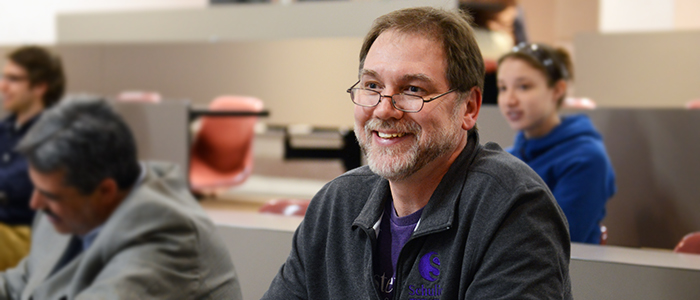The importance of the strategic planning process

Monday, February 29 was an important and interesting day for Schulich Medicine & Dentistry. The School’s leaders met to discuss a score card for our midterm strategic plan that was initiated in 2011, and discussed what adjustments to the plan required mid-course correction to ensure all units were driving forward in the best directions.
I find this whole process to be incredibly fascinating. When I think about why we go through the process, the old adage “if you are not moving forward, you are falling behind” comes to mind. There are numerous important reasons for strategic planning, which include:
- Building a stronger organization;
- Increasing organizational excellence;
- Ensuring the organization is constantly adapting positively to our learners’ needs;
- Ensuring the organization increasingly becomes a destination of choice for faculty and staff to work in;
- Ensuring the organization meets its obligations to the public and its community in the best way possible.
For an organization as big, complex and diverse as Schulich Medicine & Dentistry, achieving these goals can be challenging. However, Dr. Michael J. Strong, dean, made a great decision when he put Dr. Margaret Steele and her team in charge of leading the process forward.
The retreat on February 29 endorsed an amazing strategy map for 2016 - 2021. Everyone within the School should become fully familiar with this map, as it represents the direction we will be moving in. If followed, it will go a long way to allow us to reach our organizational goals.
While the Strategy Map is comprehensive and emphasizes our main purposes — exceptional education, high impact research and meaningful engagement with our communities — it is built on our values and thus has a solid foundation.
Two themes emerged during our discussions that really caught my attention: culture and community. Everyone I know at Schulich Medicine & Dentistry, from learners to faculty and staff, are high performers and want to attain excellence in what they do. However, I am not sure we think often enough about how our individual accomplishments contribute collectively to the School’s excellence.
Even though we serve and contribute to the benefit of several communities at Western University and the city of London, we established two primary groups for Schulich Medicine & Dentistry to focus on: our learners, staff and faculty; and our South Western Ontario community and its specific needs. For me, this was a critical step forward because by defining the communities that we wish to benefit the most through our activities, we can direct concerted efforts to them. This provides a more focused roadmap and a key way in which Schulich Medicine & Dentistry can differentiate itself from other medical schools.
These concepts and decisions will also define metrics that can be generated and used to gauge the success of the overall strategic plan and, of course, the School’s overall success. Many strategic plans are made and then simply gather dust, but not ours. Letting a plan gather dust is not something our culture will let happen.
I hope this consideration of our retreat last month and review of the Schulich Medicine & Dentistry strategic plan has been of interest to you. Our learners are front and centre in the plan. You are Schulich Medicine & Dentistry — no matter where you end up after your time with us, you should consider adopting the School's values as an effective roadmap for a successful life.
Talk to you next month.
Andrew J. Watson, PhD
Associate Dean, Graduate and Postdoctoral Studies








